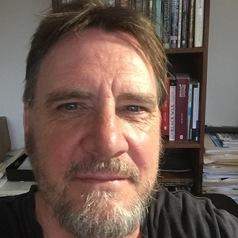
Ray Kerkhove
Associate Professor (Adjunct), School of Education., University of Southern Queensland
BA, MA & PhD from University of Queensland. Independent professional historian - Associate with the Australian Centre for Genocide Studies; Adjunct with USQ; casual research historian with two departments @ UQ. Employed by 4 universities, 5 shire councils, 2 museums and many Indigenous, arts and heritage bodies. Historian-in-Residence Sunshine Coast (2022), Noosa (2020); Visiting Fellow at Griffith University (2017, 2018); Governor's Gold Award (National Trust of Queensland 2011); Helen Taylor Award for Local History (2010). Published 13 books, 11 book chapters, 22 peer-reviewed academic articles, 5 book reviews, 70 heritage reports, 4 commemorative booklets, 11 online essays.
Less ![]()
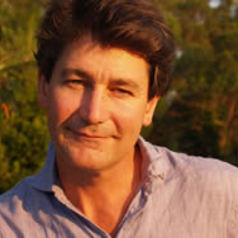
Ray Moynihan
Senior Research Fellow, Bond University
Dr Ray Moynihan is an award-winning journalist, author, documentary-maker and academic researcher, based in Australia with a global reputation. Reporting across print, radio, television and social media, Ray has worked at the ABC TV’s investigative program, Four Corners and the 7:30 Report, ABC Radio’s Background Briefing and The Australian Financial Review.
Since winning a Harkness Fellowship, based at Harvard University in 1999, in addition to his journalism, Ray has developed an impressive body of academic work resulting in articles in the Lancet, the New England Journal of Medicine, the Medical Journal of Australia, PLoS Medicine, and the British Medical Journal, BMJ, where he is a Visiting Editor. Since 2006 he has been a conjoint lecturer at the University of Newcastle, in Australia. Internationally recognized for his work on the business of medicine, Ray is regularly interviewed by media globally, and invited to give presentations at universities, conferences and workshops around the world.
Ray is currently a Senior Research Fellow at Bond University, where he completed his PhD on overdiagnosis. In recent years he has published or broadcast his stories in The Australian, Crikey.com, ABC Radio National, ABC’s The Drum online, and The Saturday Paper.
The winner of many awards for his investigative journalism, Ray’s 2005 book Selling Sickness was described in the New York Times as a “compelling case” and has been translated into a dozen languages. His fourth book, Sex, Lies & Pharmaceuticals was released globally in late 2010 and is generating widespread interest internationally.
Less ![]()
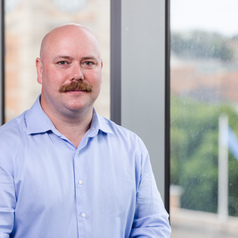
Ray Nickson
Senior Lecturer in Criminology, Newcastle Law School, University of Newcastle
Dr. Ray Nickson is Senior Lecturer at the School of Law and Justice, University of Newcastle. Prior to completing a PhD at The Australian National University, Dr. Nickson was admitted as Barrister and Solicitor in the Supreme Court of South Australia and practiced in criminal law. Dr. Nickson is also a legal practitioner in NSW. Dr. Nickson's research has focused on international criminal justice and transitional justice, restorative justice, and criminal law. His research projects have included an assessment of the impact that a mass literacy campaign for members of remote Aboriginal communities had on interactions with the justice system, and an extensive collaboration with Native American tribes to study their restorative justice practices. Dr. Nickson's current research explores the role of public-funded criminal defence lawyers and their professional experiences in providing justice for the most marginalised members of our communities.
Less ![]()
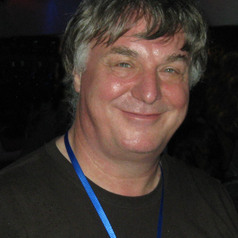
Ray Norris
Professor, School of Computing, Engineering, & Maths, Western Sydney University
Ray Norris is a British/Australian astronomer in the School of Computing, Engineering, & Maths at Western Sydney University, and with CSIRO Astronomy & Space Science. He researches how galaxies formed and evolved after the Big Bang, and the process of astronomical discovery with large data volumes. He also researches the astronomy of Australian Aboriginal people.
Ray was educated at Cambridge University, UK, and moved to Australia in 1983 to join CSIRO, where he became Head of Astrophysics in 1994, and then Australia Telescope Deputy Director before returning in 2005 to active research.
He currently leads an international project - the Evolutionary Map of the Universe - to image the faintest radio galaxies in the Universe, using the new ASKAP radiotelescope being built in Western Australia. He also leads the WTF project which is exploring machine learning techniques
He frequently appears on radio and TV, and has published a novel, Graven Images.
Less ![]()
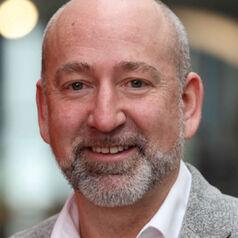
Ray O'Neill
Assistant Professor in Psychotherapy, Dublin City University
Assistant Professor in Psychotherapy in the School of Nursing, Psychotherapy and Community Health. He also is a registered practitioner as a Psychoanalytic Psychotherapist with both APPI and the ICP.
His research work and clinical practice has been around male sexual abuse survivors, EDI intersectional concerns in Mental Health systems, education and individual's lives, the LGBTQ community, and transgenerational trauma within an Irish context.
Ray has written extensively on the gay minoritised position for both services users and service providers within mental health discourses and practices with his doctoral research with DCU exploring the subjectivities involved and imposed on men in being called ‘homosexual’.
As one of Ireland’s few male Agony Aunts, Ray works significantly (and sometimes with significance) with the media in discoursing love, relationships, and desire in the twenty-first century, as a regular contributor to The Ray Darcy Show, and his co-fronting of the RTE television show Then Comes Marriage.
Current research explores the relationships between shame and personal and cultural identities; and the individual and collective transmission of trauma across generations, with particular emphasis on impacts of the Irish Famine experience.
Less ![]()
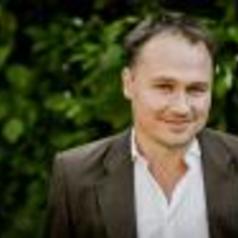
Ray Purdy
Adjunct Senior Research Fellow in Environmental Law, University College Dublin
Ray Purdy is an Adjunct Senior Research Fellow in the Faculty of Law, UCD (2022 -). Prior to this he held academic research positions at: University of Oxford (1995-1996, 2006-2022); Imperial College (1996-2003); and University College London (2000-2014).
His key area of academic expertise is in environmental law where has developed a substantial personal research profile of international standing on a wide variety of research subjects – particularly environmental compliance, legislative analysis and drafting, environmental monitoring and enforcement, climate change). He is probably best well known for his research on the use of space technologies as evidence and their capacity to monitor and enforce laws (particularly environmental ones). He has conducted funded research in this field for the European Commission, UK Space Agency, Arts and Humanities Research Council, Economic and Social Research Council and European Space Agency. He has written guidance reports on this subject for: United Nations Environment Programme (UNEP), DG ENV European Commission, International Network on Environmental Compliance and Enforcement (INECE) and the EU LIFE+ programme.
In 2014 after nearly 20 years of frustration of research not having the impact on the world that he hoped, he set up an academic spin off company called Air & Space Evidence, with a emeritus Professor of Earth Observation from University College London, and a former intelligence services analyst. This company, internationally recognized as the 'World's First Space Detective Agency," seeks to help move commercial remote sensing from the black world of intelligence uses by governments to the white world of commerce (and public good). It undertakes many different types of investigations and research using archived (and tasked) Earth observation data and designs environmental monitoring programmes using satellite imagery (and algorithms). The company was named by the leading US business and innovation magazine, Fast Company, as one their 12 World Changing Company Ideas for 2015. It won the Earth Observation Product of the Year Award 2017 (from the European Association of Remote Sensing Companies).
Less ![]()

Ray Rast
Associate Professor of History, Gonzaga University
I specialize in 20th-century U.S. history, with areas of focus that include cultural history, urban history, Latine history, and the history of the American West. I also practice public history, with an emphasis on historic preservation and interpretation. I have worked closely with the National Park Service and community stakeholders to create the Cesar E. Chavez National Monument and to preserve numerous other sites associated with Latine history.
Less ![]()
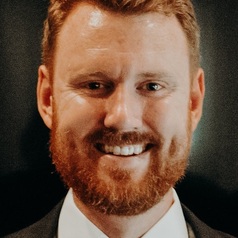
Ray Charles "Chuck" Howard
Associate Professor of Business Administration, University of Virginia
How much money will you spend next week? If you’re like most people, you will substantially under-predict your future spending when you answer this question. In my research on financial decision making, I try to understand why so many people make mistakes like this, then I use those insights to develop simple strategies that help them improve their financial outcomes. My work in this area has earned awards from the Behavioral Insights Group at Harvard University, the Society for Consumer Psychology, the Society for Judgment and Decision Making, the Think Forward Initiative, and the Social Sciences and Humanities Research Council of Canada. In my other research, I examine the causes and consequences of gender bias and media influence.
I am currently an Assistant Professor of Marketing in the Mays Business School at Texas A&M University. I earned my PhD in Marketing and Behavioral Science from the University of British Columbia in 2020, and my BA in International Economics and Finance from Ryerson University in 2014. Prior to that, I spent ten years managing business operations for internationally acclaimed hotels, restaurants, and an opera house. My full CV is available here: https://mays.tamu.edu/wp-content/uploads/2022/06/CHUCK_HOWARD_CV_JUNE_09_2022.pdf
Less ![]()

Rayan Merkbawi
Lecturer, UTS Business School, University of Technology Sydney
Rayan Merkbawi is Lecturer at UTS Business School specalising in organisations studies, Corporate Social Responsibility and Social Impact. She brings strong interdisplinary focus to her field in education, social equity, corporate political activity, business ethics and gender work outcome.
Less ![]()

Rayan Succar
Ph.D. Candidate in Mechanical and Aerospace Engineering, New York University
I am a doctoral candidate in the Department of Mechanical and Aerospace Engineering, specializing in Urban Systems. My research takes place at the Dynamical Systems lab, under the supervision of Professor Maurizio Porfiri. My work centers on stochastic complex dynamical systems, exploring both theoretical and applied perspectives. Specifically, I investigate human behavior within these systems.
Less ![]()

Raymond Boyle
Professor of Communications, University of Glasgow
Raymond Boyle's research projects include investigating the impact of digitisation and copyright on the sports media market; a study of the UK Film Council; sports journalism and coverage of the 2012 London Olympics and examining the changing relationship between factual television and representations of the world of business and finance. His forthcoming book is entitled 'Streaming the F1 Rivalry: Sport in the Platform Age' (Peter Lang).
His profile across academic, funded research and consultancy includes work within the broad areas of cultural and media policy. In particular he has developed an international reputation for research in the area of media and sports, which has included work on various aspects related to media policy (such as the relationship between new media and sports content) as well as the relationship between sport and its wider cultural and economic impact on society. He is currently working with UEFA and the University of Lausanne in the delivery of their Diploma in Football Management.
He has acted (2010 and 2011) as an academic advisor to the Department of Business Innovation and Skills (BIS) on media and entrepreneurship issues and with the Byron Review (2008) into Children and New Technology, published by the Department of Children, Schools and Families/DCMS. He has been involved in a number of research and consultancy projects around media issues, these have been funded by the Broadcasting Standards Council (1998); the European Institute for the Media (1999, 2000); The Home Office (2001, 2002); The Scottish Parliament (2001); FIFA (2003); DCMS (2005) and the AHRC (2009/11, 2012 -).
Less ![]()
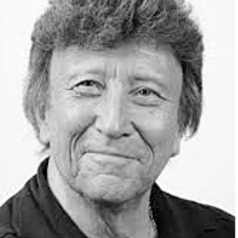
Raymond Evans
Adjunct Professor, Griffith University, Griffith University
Raymond Evans is a well-known Australian social historian, specialising in such fields of research as race relations, war and society study, gender relations, convict studies, popular culture, conflict study, federation research, deviancy study and frontier relations.
In recent times, he has been concentrating historical research into various aspects of frontier study, such as assessing violent frontier death-rates, contributing to the genocide debate as well as determining historical culpability for the colonial dispossession process.
Less ![]()
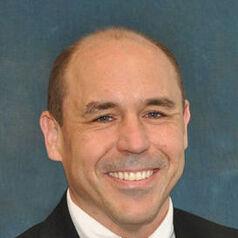
Raymond Gibney Jr.
Associate Professor of Management, Penn State
Raymond Gibney Jr. joined Penn State Harrisburg in 2007. His primary teaching responsibilities focus on human resource management. Prior to joining Penn State Harrisburg, Dr. Gibney worked as a consultant with such firms as PeopleSoft and Coopers & Lybrand. He has consulted on various HR related issues across diverse industries.
Less ![]()

Raymond Ho
PhD Student in Clinical Forensic Psychology, Simon Fraser University
Raymond Ho is a Clinical Psychology PhD Student at Simon Fraser University in the Douglas Research Lab. He is also a scholar at the CIHR-funded Alliance Against Violence and Adversity Triadic Mentorship Program, and a Research & Evaluation Associate at Homefront Calgary. Passionate about using interdisciplinary connections in solving complex problems, his current research on psychopathy, violence risk assessments, and implementation is funded by the Canadian Institutes of Health Research and the Social Sciences and Humanities Research Council.
Raymond was also the director of Access Abroad Hong Kong (formerly Project Access Hong Kong), a registered charity that strives to bridge the opportunity gap in education by empowering underprivileged mentees from low-income backgrounds and non-fee-paying schools. He is currently a mentor at Psych'in Out, a program that supports diverse students in accessing graduate school. He has been teaching and mentoring students for 6+ years, and has also guest lectured on topics such as "Is Santa Claus a psychopath?".
Less ![]()
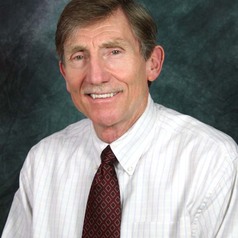
Raymond Hogler
Professor of Management, Colorado State University
I teach labor and employment relations at Colorado State University. After earning my Ph.D. and J.D. degrees at the University of Colorado, I taught at Pennsylvania State University where I was a tenured associate professor in the Labor Studies Department until returning to Colorado. In 2007, I was awarded a Fulbright Distinguished Chair in Labor Law at the University of Tuscia in Viterbo, Italy. My fields of interest include labor history, workplace collective action, and economic justice. My most recent book is a study of American labor law and how it shaped union formation, published by Praeger in 2015 ("The End of American Labor Unions: The Right-to-Work Movement and the Erosion of Collective Bargaining").
Less ![]()
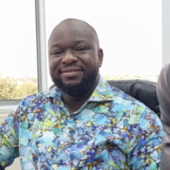

Raymond Offenheiser
Professor of global affairs, director of the McKenna Center for Human Development and Global Business, University of Notre Dame
Offenheiser served as the inaugural William J. Pulte Director of the Keough School’s Pulte Institute for Global Development, where he oversaw and developed the Pulte Institute’s academic, research, and public policy activities, as well as its strategy for long-term growth. He also identified and cultivated critical, strategic partnerships between the institute and companies, federal agencies, foundations, and private philanthropists. Additionally, he represented the Pulte Institute at local, national, and international events.
A widely known nonprofit leader and innovator with a broad range of international development experience in Asia, Africa and Latin America, Offenheiser served as president of Oxfam America for 20 years. Under his leadership, the agency grew eightfold and repositioned itself in the United States as an influential voice on international development, human rights and governance, humanitarianism, and foreign assistance.
Prior to joining Oxfam, Offenheiser represented the Ford Foundation in Bangladesh and the Andean and Southern Cone regions of South America. He has directed programs for the Inter-American Foundation in Brazil and Colombia, and he has worked for Save the Children Federation in Mexico. At the 2012 G20 Summit, he was appointed by the Obama administration to represent civil society interests on the leadership council of the New Alliance for Food Security and Nutrition in Africa.
Offenheiser has served as honorary president of Wetlands International, and he was a co-founder of the ONE Campaign, the Modernizing Foreign Assistance Network and the Food Policy Action Network. He has served on the advisory boards of the World Economic Forum, the Council on Foreign Relations, the Aspen Institute, the World Agricultural Forum, the Gates Foundation, the Clinton Global Initiative, Harvard Business School, the Kennedy School of Government at Harvard, and Cornell University.
A 1971 graduate of Notre Dame, Offenheiser also holds a master’s degree in development sociology from Cornell University. He currently serves as chair of the board of directors for BRAC USA is the US-based affiliate of international development organization BRAC, one of the largest nongovernmental organizations in the world, which reaches more than 100 million people in 11 countries with evidence-based approaches that assist families to break out of the cycle of poverty. He also serves on the board of the Consensus Building Institute and the Oxfam America Action Fund and on the Forum for Corporate Responsibility of the BHP Corporation and the advisory board of the Emerging Markets Investors Alliance (EMIA). Offenheiser has been a frequent commentator with US and international media.
Less ![]()
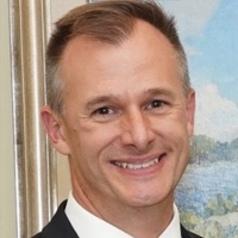
Raymond Robertson
Professor of Economics and Government, Texas A&M University
Dr. Raymond Robertson is a professor and holder of the Helen and Roy Ryu Chair in Economics and Government in the Department of International Affairs at the Bush School of Government and Public Service. He is a research fellow at the Institute for the Study of Labor in Bonn, Germany.
Robertson earned a BA in political science and economics from Trinity University in San Antonio, Texas, and an MS and PhD in economics from the University of Texas at Austin. He has taught at the Maxwell School of Citizenship and Public Affairs at Syracuse University, and was a visiting professor in the Department of Economics at the Graduate School of Administration, Monterrey Institute of Technology’s Mexico City campus.
Less ![]()

Raymond Wightman
Imaging Core Facility Manager, Sainsbury Laboratory, University of Cambridge
I am investigating how physical changes in cell morphology give rise to above-ground plant organs such as leaves and flowers. These organs are derived from a continuous pool of undifferentiated cells within the shoot apical meristem. I am interested in how the cells of the meristem undergo proper transformations in shape and size which is a result of changes in cell wall deposition and remodelling of existing cell wall components.
Less ![]()
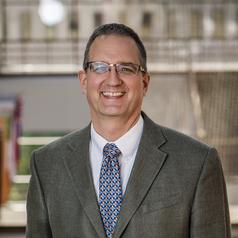
Raymond A. Patterson
Professor, Area Chair, Business Technology Management, Haskayne School of Business, University of Calgary
PhD, MBA, CPA (CGA); extensive background in analytics, artificial intelligence and heuristics, decision modeling, customer satisfaction, information systems, networks, privacy and security.
7/2015 – present: Professor, The University of Calgary, Haskayne School of Business;
11/2017 – 2019: Haskayne Research Professorship, Business Technology Management, The University of Calgary, Haskayne School of Business;
7/2017 – present: Area Chair, Business Technology Management, The University of Calgary, Haskayne School of Business;
7/2016 – 7/2017: Research Director, Accounting and Business Technology Management, The University of Calgary, Haskayne School of Business;
7/2015 – present: Adjunct Professor, The University of Alberta, Alberta School of Business;
7/2001 – 6/2015: Associate Professor, The University of Alberta, Alberta School of Business;
7/2007 – 6/2015: The Alberta School of Business Fellow in Management Information Systems;
7/2002 – 6/2007: Canada Research Chair in Management Information Systems, The University of Alberta, School of Business;
9/1995 – 6/2001 Assistant Professor, The University of Texas at Dallas, School of Management.
Less ![]()

Raymond G. De Vries
Professor Emeritus, Center for Bioethics and Social Sciences in Medicine, University of Michigan
Raymond De Vries PhD is Professor emeritus in the Center for Bioethics and Social Sciences in Medicine at the University of Michigan and is a Professor emeritus in the Department of Learning Health Sciences, the Department of Sociology, and the Department of Obstetrics and Gynecology. He is also Professor emeritus at CAPHRI School for Public Health and Primary Care, University of Maastricht, the Netherlands. He is particularly interested in the regulation of science and the production of scientific knowledge; clinical trials of genetic therapies; the export of western moral traditions to non-western societies; and the social, ethical, and policy issues associated with the medicalization of pregnancy and birth. In 2005 he published A Pleasing Birth: Midwifery and Maternity Care in the Netherlands (Temple University Press), and he is co-editor of The View from Here: Bioethics and the Social Sciences (Blackwell, 2007), Bioethics in the Field, a special issue of Social Science in Medicine (2013), and Critical Studies of Risk and Uncertainty in Maternity Care (Palgrave, forthcoming).
Less ![]()

Rayna Denison
Professor of Film and Digital Arts, University of Bristol
Rayna Denison is an expert in contemporary popular animation and film, with a specialism in franchising and animation. Her monographs Anime: A Critical Introduction and Studio Ghibli: An Industrial History emphasise the cultural and economic importance of animation within Japanese and global culture. Rayna has also edited books including Princess Mononoke: Understanding Studio Ghibli's Monster Princess, and the Eisner Award-nominated Superheroes on World Screens. Her work can be found in many major journals of film and animation including the Journal of Cinema and Media Studies, Japan Forum, the International Journal of Cultural Studies and Velvet Light Trap.
Less ![]()
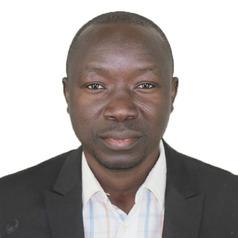
Razak Kiribou
PhD Candidate, Africa Center of Excellence for Climate Smart Agriculture and Biodiversity Conservation, Haramaya University
Razak is a PhD candidate in climate-smart agriculture at Haramaya University.
Mr Kiribou's PhD topic is the Spatio-temporal carbon dioxide emission dynamics induced by land use change in Bontioli complex reserve of the West African dryland ecosystem.
His previous research has included how African apes are already being exposed to climate change impacts, and will experience extreme events such as wildfires, heatwaves and flooding more frequently in the next 30 years (https://journals.plos.org/climate/article?id=10.1371/journal.pclm.0000345).
Less ![]()
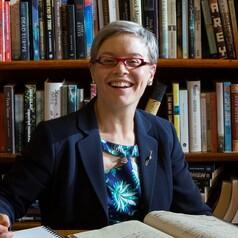
Rebe Taylor
Associate Professor of History, University of Tasmania
My fields of expertise are Tasmanian Aboriginal history, the histories of science and empire; genocide and extinction studies. I currently hold an ARC Discovery Project titled: ‘Extinction, Survival, Resurgence: Indigenous and Colonial Histories' at the University of Tasmania, and previously held the ARC Postdoctoral fellowship for the project 'From Race to the Genome: the Tasmanian Aboriginal People within the Scientific Imagination'.
I am contracted with Black Inc to write the book: 'Women at the Edge of the World: Surviving Extinction'.
My 2017 book, Into the Heart of Tasmania: A Search for Human Antiquity, (Melbourne University Press) won the 2018 Tasmanian Book Prize, the 2018 Queensland Premier’s Award for history, the inaugural Joan and Dick Family Green Award for Tasmanian History and was shortlisted for the Ernest Scott Prize for history.
I held the inaugural Coral Thomas Fellow at State Library NSW. I have held Fellowships and Scholarships at the The University of Melbourne, Kings College London, Oxford University and the ANU.
Less ![]()



Rebecca Buxton
Lecturer in Social and Political Philosophy, University of Bristol
Rebecca Buxton is a Lecturer in Social and Political Philosophy at the University of Bristol, working on migration, displacement, citizenship, and exile. Her research examines the political rights of refugees in various settings and the concept of 'membership' in political and social theory.
Less ![]()
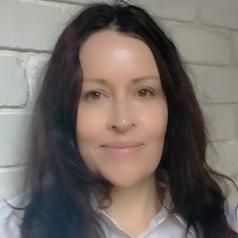
Rebecca Buys
Dr Rebecca Buys is a Postdoctoral Research Fellow with the Monash Gender and Family Violence Prevention Centre.
Her research offers new ways of approaching political, policy and activist processes to make social change through the framework of critical relationism. Rebecca's work examines forms of violence and practices of care. Her current research includes an exploration of the experiences and insights of those who engaged with the 2016 Victorian Royal Commission into Family Violence and its subsequent implementation processes, a critical examination of the facilitation of organised encounters to heal individual and group relations, and a focus on intimate partner violence through the Australian Research Council funded Discovery Project, ‘Securing women’s lives’.
Rebecca has a BA (Hons) in Political Science from the University of Canterbury (Aotearoa/New Zealand), a MSc in Comparative Politics - Conflict Studies from the London School of Economics and a PhD in Public Policy/Social Theory from Deakin University, alongside extensive experience working in government and for non-government organisations.
Less ![]()
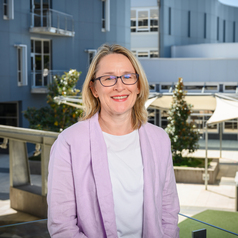
Rebecca Byrne
Associate professor, Queensland University of Technology
Associate Professor Rebecca Byrne is an ARC DECRA Fellow (2023-2025) and Accredited Practising Dietitian who aims to support parents of young children and educators in the early childhood education and care setting to create calm and enjoyable mealtimes.
Rebecca practised as a clinical dietitian in hospital and domiciliary settings before completing her PhD. After two years as a postdoctoral research fellow within an NHMRC funded Centre for Research Excellence in the Early Prevention of Obesity in Childhood, Rebecca was appointed as a lecturer within the School of Exercise and Nutrition Sciences.
Her research focuses on what and how young children are fed. She has a focus on improving the measurement of dietary intake and other health behaviours in early childhood, and the promotion of responsive feeding practices which support children’s autonomy, development of healthy food preferences and optimal growth. Rebecca works with researchers across the disciplines of nutrition, physical activity, nursing, psychology and education and has successful partnerships with organisations such as Playgroup QLD, Children’s Health Queensland and C&K. She is a founding member of Australia’s National Nutrition Network: Early Childhood Education and Care.
Less ![]()

Rebecca Cordell
Assistant Professor of Political Science, University of Pittsburgh
I am an Assistant Professor in the Department of Political Science at the University of Pittsburgh. My research focuses on human rights and state repression. I am particularly interested in why countries cooperate in transnational repression, measuring human rights using machine learning and text analysis, and examining public opinion and human rights. Additionally, I work on the Sub-national Analysis of Repression Project (SNARP).
Less ![]()


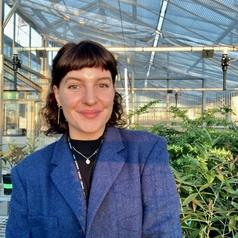
Rebecca Degnan
PhD Candidate in Molecular Biology and Plant Pathology, The University of Queensland
I am a current PhD candidate in Molecular Plant Pathology at the University of Queensland, with my thesis focussing on RNA interference-mediated control and exploration of rust fungi. I have an Honours (Class I, Valedictorian) in Molecular Cell Biology, and a Bachelor of Science majoring in Plant Science and Genetics.
I have worked for more than 4 years as a research assistant in Molecular Biology, Plant Pathology, and Forest Pathology. I also have several years of experience as a teaching assistant in Genetics, Plant Biotechnology, and Plant Pathology.
I have published multiple peer-reviewed papers, spoken at conferences both within Australia and internationally, and participated in science communication and outreach through guest seminars and professional committee roles.
Less ![]()
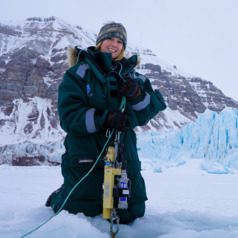
Rebecca Duncan
PhD Candidate in Polar Marine Ecology and Climate Change, University of Technology Sydney
I am a final year PhD candidate with University Technology Sydney and UNIS Svalbard (Arctic Norway) and my research interest is the biological implications of sea ice decline and climate change in the polar regions, in both terrestrial and marine environments. I have spent 7 years working in the high Arctic, undertaking remote fieldwork on the frozen ocean. I have produced six first author publications in high quality scientific journals, and co-authored two books on polar fieldwork. I am a passionate advocate for women and diversity in science and have presented at many international conferences and seminars, including on the topic of barriers to participation for women in polar science. I have a Masters of Environmental Science, a Bachelor of Science and a Bachelor of Arts. In addition to conducting my research, I am employed as a guest lecturer and academic teaching staff.
Less ![]()
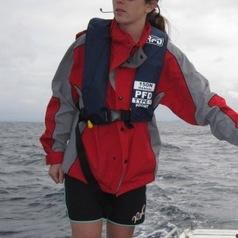
Rebecca Dunlop
Senior Lecturer in Physiology, The University of Queensland
I am a lecturer in physiology at the School of Veterinary Science, University of Queensland. Originally from Ireland, I obtained my BSc (Honours) degree in Environmental Biology and my PhD in fish neuroethology from The Queen’s University of Belfast. I then moved to Australia and completed a post-doc in humpback whale social communication.
Less ![]()
- Market Data





















